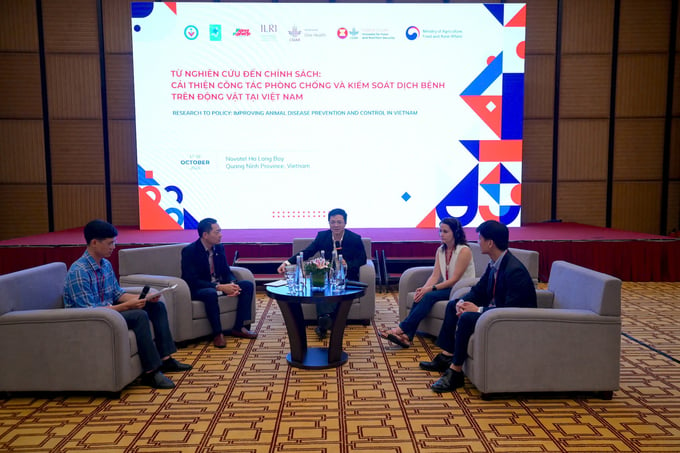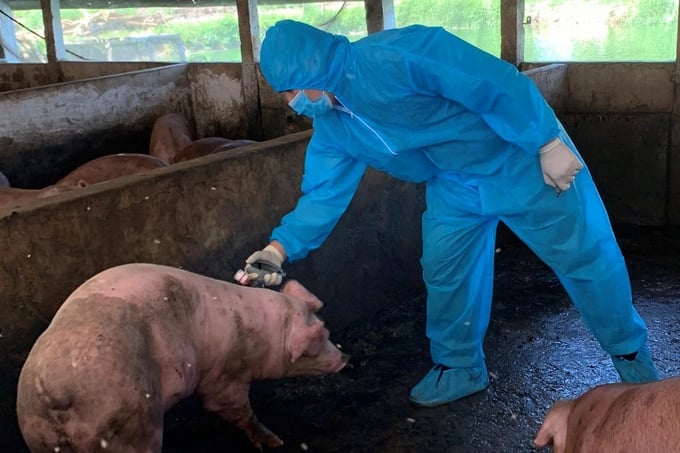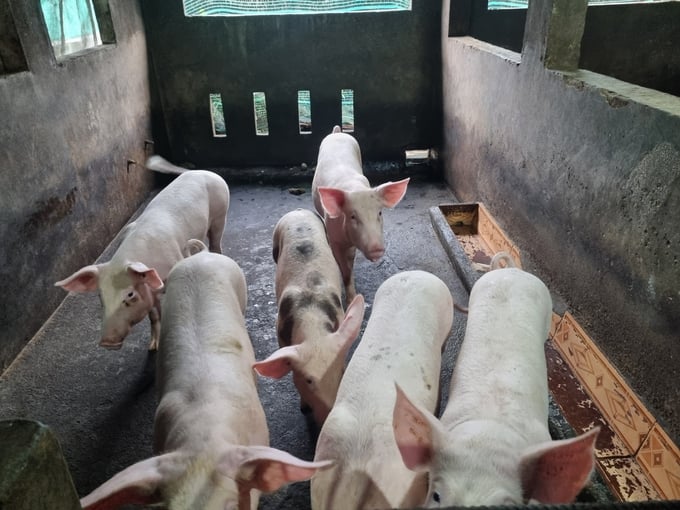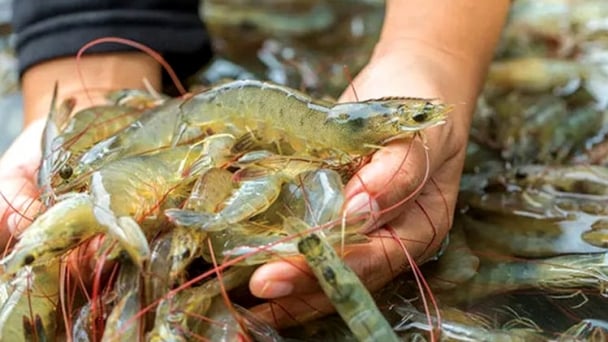May 24, 2025 | 04:16 GMT +7
May 24, 2025 | 04:16 GMT +7
Hotline: 0913.378.918
May 24, 2025 | 04:16 GMT +7
Hotline: 0913.378.918

Discussion held during the workshop “From research to policy: Improving animal disease prevention and control in Vietnam”. Photo: Tung Dinh.
Discussing at the workshop “From research to policy: Improving animal disease prevention and control in Vietnam” on October 17, Dr. Nguyen Van Long, Director of the Department of Animal Health under the Ministry of Agriculture and Rural Development (MARD), expressed concern about the diversity of virus strains in Vietnam.
He highlighted a critical weakness in the country’s veterinary system - an incomplete understanding of existing virus strains. In particular, African swine fever (ASF) poses an ongoing challenge, representing a formidable “enemy” that the livestock industry must remain vigilant against.
Despite efforts to contain the epidemic, Dr. Long stressed the importance of reflecting on the root causes behind the outbreaks. “We cannot simply blame external factors like small-scale farming,” he noted.
He further questioned: What are the primary drivers of the rapid spread? If effective solutions are not identified, Vietnam could face a more severe epidemic by the end of this year, potentially extending into 2025.
Dr. Long underscored the importance of identifying priority areas in research to enhance disease control efforts. He warned that without strict regulation of animal trade, slaughter, and transportation, it will be difficult to trace sources of infection. Regarding ASF, he emphasized that no country in the world can guarantee complete safety. Therefore, Vietnam must proceed cautiously in developing and deploying vaccines to mitigate risks effectively.

Vietnam needs to be extremely cautious in developing and using vaccines. Photo: Linh Linh.
Dr. Nguyen Van Diep, General Director of AVAC Vietnam, emphasized that developing African swine fever vaccines is a global challenge, where vaccine technology plays a decisive role in determining success. He stated that AVAC Vietnam operates on the principle of determination and stressed the importance of involving international organizations in the vaccine evaluation process to ensure objectivity and facilitate the distribution of vaccines to countries in need. Dr. Diep offered several policy recommendations. First, he suggested that Vietnam align its vaccine standards with the latest international guidelines, taking into account factors such as animal age, breed, and the impact on sows. Stricter standards, he argued, will enhance the effectiveness of disease control.
He also highlighted the need to regulate the circulation and use of vaccines closely, limiting the use of pharmaceuticals of unknown origin. In addition, Dr. Diep urged local veterinary departments to collaborate in evaluating the economic efficiency and environmental impact of vaccines and to support businesses throughout the product development process.
In cases where new virus strains emerge, relevant stakeholders must come together to assess the risks and develop proactive disease prevention strategies to safeguard the livestock industry.
ILRI vaccine expert Anna Lacasta provided an international viewpoint, stressing that ASF continues to pose a significant threat to pig herds worldwide. She cautioned that even with the availability of vaccines, controlling the disease will remain challenging. Raising farmers’ awareness and enhancing biosecure measurements, she said, are critical to effective prevention. Additionally, field research and biosecurity workshops will play a crucial role in improving African swine fever control measures.
Dr. Lacasta also emphasized the importance of epidemiological surveillance to assess whether vaccines are effective against circulating virus strains. Surveillance efforts must be continuous, given the constantly evolving nature of viruses.
She further noted that a one-size-fits-all approach to vaccination is ineffective: "Vietnam must develop region-specific vaccines. For instance, the northern and southern regions may require different vaccines to address the distinct epidemic conditions in each area," Dr. Lacasta recommended.

ILRI can connect Vietnam with major research and development (R&D) organizations and businesses in the world. Photo: Linh Linh.
Addressing the challenge of mobilizing resources for vaccine development, Dr. Nguyen Viet Hung, Health Leader of ILRI Kenya, highlighted that outbreaks present an opportunity to accelerate the transition from research to practical application.
Dr. Hung shared that following Vietnam’s announcement of its successful production of an ASF vaccine, many high-level officials and international partners reached out to explore commercial opportunities and technical aspects. He noted that ILRI could act as a bridge, connecting Vietnam with leading research and development (R&D) organizations and global businesses.
Currently, ILRI is a partner of the Global Alliance for Livestock Vaccines (GALVmed), which unites the world’s largest veterinary pharmaceutical companies to coordinate vaccine production on a global scale. Dr. Hung explained that if Vietnam joins this alliance, it could gain access to valuable funding to support R&D efforts. Moreover, international organizations would be involved in evaluating the effectiveness of Vietnam’s vaccines and providing recommendations to further improve their quality.
In his closing remarks, Director Nguyen Van Long reaffirmed the critical role of vaccines in supporting small-scale livestock farmers. He emphasized the need for close collaboration between scientists, researchers, businesses, and international organizations to ensure that disease prevention tools effectively reach farmers.
Dr. Long also addressed the potential impact of technological advances, noting that developments in gene editing could not only change viruses but also alter the DNA of livestock. He cautioned businesses against commercializing vaccines that have not been rigorously tested, warning that this could lead to risks and compromise long-term disease prevention efforts.
The Director of Animal Health called for continued contributions and recommendations from both domestic and international scientists to help policymakers develop and implement appropriate, effective animal disease prevention strategies.

(VAN) WWF, GIZ, IUCN, UNDP call for biodiversity conservation and sustainable development must be regarded as a unity in strategies for a green future.

(VAN) On celebration of International Day for Biological Diversity, Deputy Minister Nguyen Quoc Tri called for practical actions to address nature and biodiversity conservation.

(VAN) Dr. Hoang Thi Thanh Nhan – Deputy Director of the Nature and Biodiversity Conservation Agency – highlighted this on the International Day for Biological Diversity, May 22, 2025.
![Ho Chi Minh city adapts to climate change: [2] Accelerating action](https://t.ex-cdn.com/nongnghiepmoitruong.vn/608w/files/chiqk/2025/05/22/4024-4220-bien-doi-khi-hau-1-100626_766.jpg)
(VAN) Clearly recognizing the challenges posed by climate change, Ho Chi Minh city has swiftly shaped its policies and implemented practical solutions to adapt.

(VAN) Rice straw is no longer just a discarded byproduct, but it is becoming a green resource that helps farmers in the Mekong Delta reduce emissions and promote circular, sustainable agriculture.

(VAN) Other Effective Area-based Conservation Measures (OECMs) are solutions that contribute effectively to achieving the goals of the Kunming–Montreal Global Biodiversity Framework.

(VAN) A study assessing the carbon footprint of whiteleg shrimp farming in China shows the potential for carbon emission reduction through the use of renewable energy.